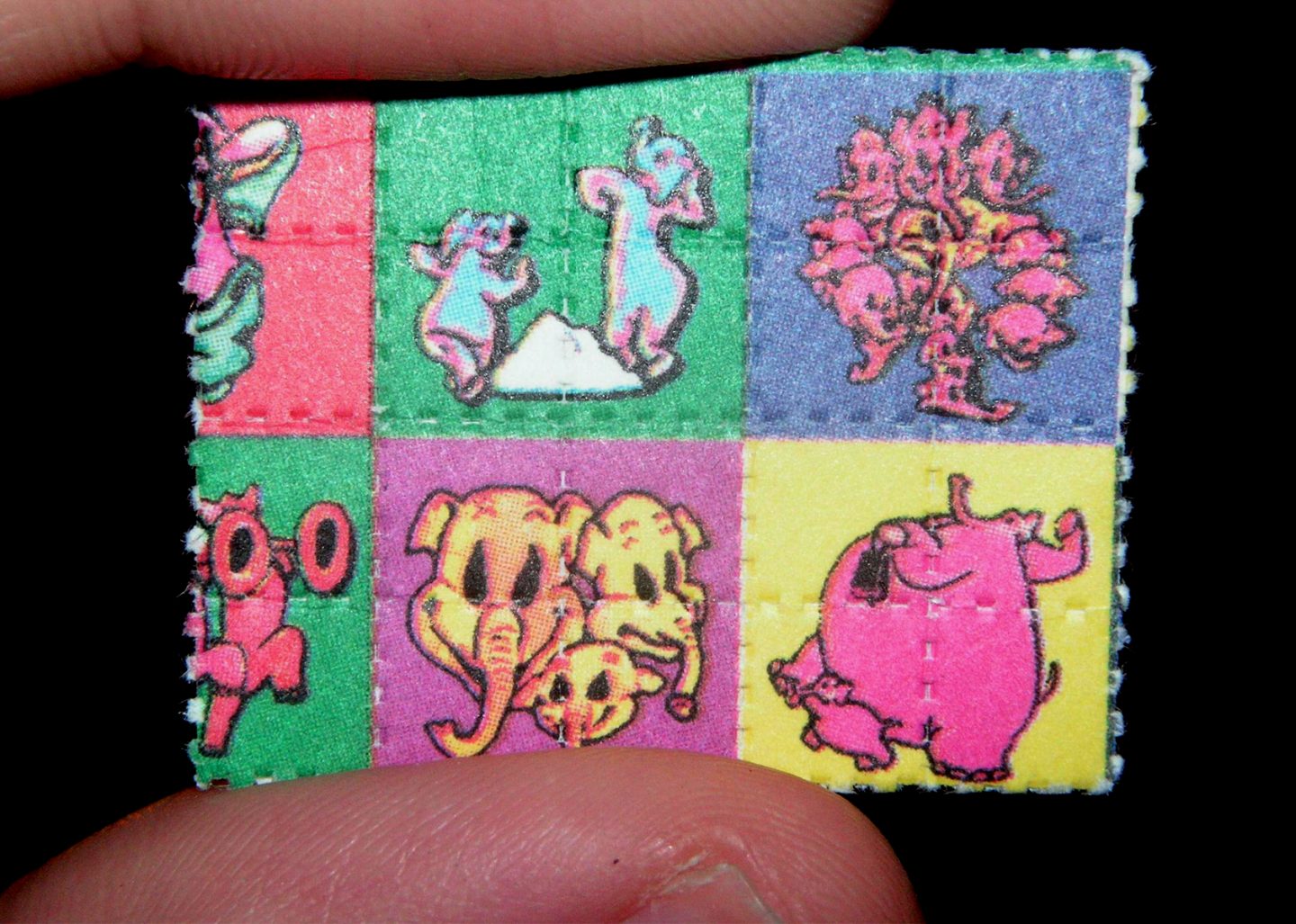
There is huge progress going on in the field of psychedelic research. The first study with the psychedelic drug, LSD, has just taken place – after a 40-year halt in research opportunities. In 1968 LSD was banned in the US, leading to a suspension of the busy, vast and promising LSD studies that were going on at the time. LSD was shown at the time to be an effective treatment for alcoholism, as well as for anxiety and depression associated with advanced-stage illness. LSD has been regarded as a Schedule I substance in the US under the Controlled Substances Act of 1970 (meaning it has no medical benefits and has a high potential for abuse). LSD is also a class A drug in the UK, putting it in the same class of drugs as heroin and crack cocaine. Similar research has been prevented in the UK following the Misuse of Drugs Act (1971).
This new study, the first since the 60s, was conducted in Switzerland by Dr Peter Gasser, the same country where Albert Hoffman first synthesised LSD in 1938, changing history forever. The study, approved by the Foods and Drug Administration (FDA), investigated the effects of LSD therapy on 12 terminally ill patients with cancer. The groundbreaking results were published in the Journal of Nervous and Mental Disease, which can be read in full here.
For the trial period, the patients stopped taking their anti-anxiety or anti-depressant medication and avoided alcohol 24 hours prior to the study. One group was administered 200 micrograms of LSD (considered by many to be a ‘full dose’) while the second group was administered 20 micrograms (which would offer barely noticeable effects or no effects at all). Each individual had two sessions with the drug, separated by a few weeks apart. 11 out of the 12 patients had no experience with the drug. Dr Gasser told the New York Times, “I told them that each session would be right here, in a safe environment, and I am a part of it…I said, ‘I can’t guarantee you won’t have intense distress, but I can tell you that if you do, it will pass.'”
Dr Gasser guided the patients and talked with them as they were having their psychedelic experience. In this controlled and medically supervised setting, anxiety levels were reduced by 20% on standard anxiety tests. No long-term negative effects were reported. And the 4 patients who did not take the full dose experienced a worsening of their anxiety after 8 weeks.
This is not to say that the experience itself was always pleasant. 6 adverse events — including illusions, emotional distress, and feeling cold or abnormal — were reported by subjects during their experience, but those were resolved quickly as the drug’s effects wore off.
As one patient, Peter recounted his experience: “…the major part was pure distress at all these memories I had successfully forgotten for decades,” he said. “These painful feelings, regrets, this fear of death. I remember feeling very cold for a long time. I was shivering, even though I was sweating. It was a mental coldness, I think, a memory of neglect.” He experienced a feeling of “dread” and felt “There was a fear that it could all go wrong, that it could turn into a bad trip.” However, this confrontation with fear is part of the healing process and it leads to lasting positive changes.
The higher-dose group said that the therapy sessions had profound positive effects on their anxiety, offering them an unprecedented amount of relief. In follow up sessions, patients reported that their reduction in anxiety levels was maintained 8 weeks following treatment. The Multidisciplinary Association for Psychedelic Studies (MAPS) largely funded, designed and co-ordinated the study. Rick Doblin, the founder of MAPS, said that LSD therapy offers the patient a cathartic and mystical experience, giving them the ability to shift their focus from the time they don’t have to the time they do have. Likewise, Neal Goldsmith, author of Psychedelic Healing, had the following to say:
It has long term implications for society. In the short term it’s going to help patients, people. So the question really becomes, what’s the benefit of a spiritual epiphany or relief or relaxation? And what’s the effect of that on a dying patient?
Stanislav Grof, who was a pioneering LSD researcher in the 50s and 60s, recently re-affirmed the incredible potential of this substance. He said LSD can result in:
…a tremendous deepening and acceleration of the psychotherapeutic process, and compared with the therapy in general, which mostly focuses on suppression of symptoms, here we had something that could actually get to the core of the problems.
Rick Doblin hopes that a larger study can be conducted in the near future, allowing psychedelic psychotherapy to be introduced into mainstream medicine. If LSD therapy could be carried out on 400 patients and shown to have the same degree of effectiveness, this could legitimise the drug as a prescribed medicine. Doblin had the following optimistic message:
The political suppression of this research is over. I don’t think the genie is going to be put back in the bottle.